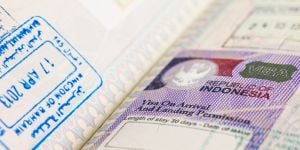
The development of e-visas and transnational programs aiming to eliminate borders suggests a future where the world might be entirely open. The Schengen model, which allows for ease of travel among participating countries, is gaining traction globally. However, for a truly borderless world to exist, it must include all citizens. Can a world without borders coexist with increasingly restrictive norms?
Expanding border-free zones beyond Europe
The Schengen system's success has sparked interest beyond Europe, influencing regions like the Gulf Cooperation Council (GCC), the African Union, and Southeast Asia to explore their own border-free zones. The Schengen visa, defined by the European Council, allows travelers to enter and move within the Schengen area for up to 90 days within a six-month period, including airport transits. This visa is issued by the 27 European Union countries, as well as Iceland, Switzerland, Norway, and Liechtenstein.
One significant advantage of the Schengen visa is the freedom it grants to move across the specified zone. Emulating this, the GCC plans to launch a common visa by 2025 for its member states: the United Arab Emirates, Bahrain, Qatar, Kuwait, Oman, and Saudi Arabia. This visa will allow unrestricted travel within the GCC, aiming to strengthen cooperation and facilitate the flow of tourists and business travelers. The initiative is expected to stimulate investments and propel economic growth across the Gulf countries.
In a parallel effort, Thailand is spearheading a similar initiative for Southeast Asian countries, aiming to enhance growth, boost tourism, and attract foreign investments. Expected participants include Cambodia, Vietnam, Laos, Malaysia, and Myanmar. Additionally, Thailand has arranged visa exemptions with China, Taiwan, and India, and a temporary arrangement with Kazakhstan, further supporting regional connectivity and economic opportunities.
Advancing free movement: Is a borderless Africa on the horizon?
The African Union (AU) is striving to eliminate borders to mitigate the disparity between "powerful" and "weak" passports, simplify expatriations within the continent, and foster economic growth. In July 2016, the AU launched the "African Continental Passport," drawing inspiration from Europe's model of free movement. Initially, this launch served as a pilot, with only a select group of top ministers and officials receiving the passport. The goal was to pave the way for a borderless Africa by 2026. Despite slow progress, the outlook remains optimistic.
Visas: Pioneering regional relaxation
Countries such as Benin, Gambia, Seychelles, Rwanda, and recently Kenya (since January 1st) have set precedents by abolishing visas for African travelers and urging neighboring countries to follow suit. However, Kenya's new approach, replacing visas with a compulsory, paid travel authorization ($30) required 72 hours before departure, has sparked controversy. This move has left many Africans, who previously enjoyed free access to Kenya, feeling misled and suggests a deviation from the European free movement model.
While the concept of a universal African passport seems distant, regional progress appears more promising. In June, five South African Development Community (SADC) nations announced plans for a shared visa to boost economic and tourism prospects. Zambia and Zimbabwe, already participants in the "KaZa Univisa" program, are now joined by Angola, Namibia, and Botswana. This initiative is expected to eventually extend to other SADC countries, highlighting regional collaboration as a practical step towards broader continental integration.
Is globalization truly expanding access?
The global trend towards eradicating borders suggests a movement towards a unified world, with various state organizations and nations initiating progressive visa policies. As of October 1st, Sri Lanka has initiated a pilot program offering free tourist visas for six months, granting 30-day visas to nationals from 35 countries, including India, China, France, and the United States. Earlier, in April, the European Union announced more lenient visa regulations for citizens from Oman, Bahrain, and Saudi Arabia. Concurrently, Saudi Arabia has eased access for holders of Schengen, American, or British visas, allowing them to obtain electronic visas more readily.
Digital visas are becoming pivotal in boosting international mobility. Countries such as Cameroon, Brazil, the Philippines, Australia, the EU, the United States, Canada, Ethiopia, India, and South Korea are increasingly turning to digital solutions. The shift towards e-visas is set to reduce bureaucratic hurdles and save substantial time for travelers. However, this digital transition also underscores the profound disparities that persist between different states, challenging the ideal of a truly borderless global community.
Navigating a partially open world: Globalization's hidden disparities
The concept of a "borderless world" is fraught with limitations. While borders may vanish for some nationalities, they remain firmly intact for others and, in some cases, are even fortifying. This phenomenon is underscored by the stiffening of migration policies and the disparity between "powerful" and "weak" passports. According to the 2024 Henley & Partners rankings, the Singaporean passport tops the list, permitting entry to 195 countries without a visa—significantly above the global average of 111 visa-free countries. Notably, a majority of the top-tier passports hail from Europe (Germany, Italy, France, Denmark, Sweden), alongside the United States, Japan, UAE, Canada, South Korea, New Zealand, and Australia. In Latin America, Chile and Argentina lead with visa-free access to 176 and 172 destinations, respectively. In Africa, Seychelles, Mauritius, and South Africa offer the most visa-free travel options.
This supposed "global world without barriers" actually masks profound restrictions that vary by nationality. The recent tightening of immigration regulations in Europe has a direct impact on international mobility. Certain groups, such as African students in Canada or African and Asian artists seeking to perform in Europe, encounter high visa rejection rates. Experts suggest that these growing disparities reflect broader social inequalities across the globe, which influence international mobility and exacerbate the economic divide between wealthier and poorer nations.



















